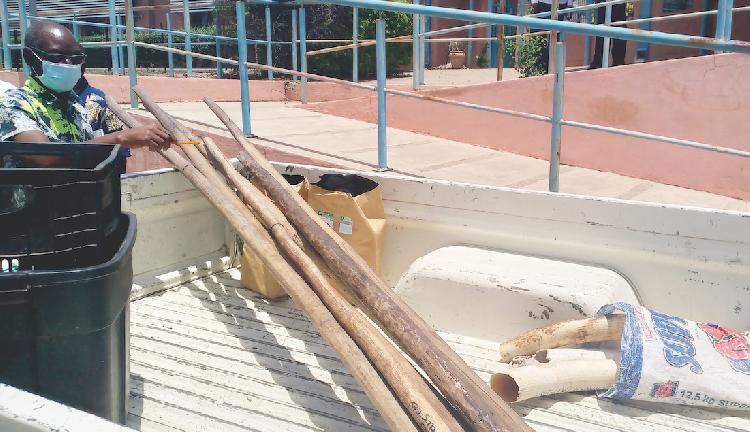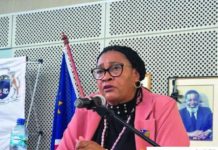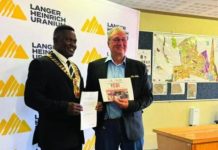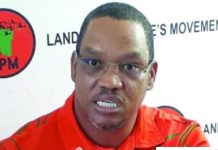Africa-Press – Namibia. WITH no firearms being found on the Nchindo brothers and their cousin, who were brutally gunned down by the Botswana Defence Force (BDF) on 5 November last year, the lack of a smoking gun to justify the use of deadly force has remained the elephant in the room at the inquest into the killings.
The inquest yesterday concluded in the Kasane Magistrate’s Court, with a senior Botswana police officer confirming that not only was no gun found, but the police did not find empty cartridges belonging to the BDF, or coming from a gun or guns fired by the victims either.
It has been alleged that Tommy, Martin and Wamunyima Nchindo, and their cousin Sinvula Munyeme were poachers and fired a bullet at the BDF on 5 November, which caused the soldiers to retaliate.
Testimonies throughout the inquest, however, revealed that the BDF carried out an independent search immediately after the incident and did not find any guns.
Another joint search with Namibian Police scuba-divers was carried out at the scene on 19 November, which once again did not yield any firearms. The search was called off because the area was allegedly infested with hippos.
Four BDF soldiers fired a total of 32 bullets which killed the Namibian men, according to the inquest. The last witness, Botwana police assistant commissioner Kutlwano Eanya, during his testimony yesterday also confirmed that not only was no gun found, but no empty cartridges were found.
He said there was no need to collect the guns used, since the soldiers already admitted they shot and killed the men. “The gun is crucial evidence, but does not affect our case,” Eanya said.
As far as Eanya was concerned, the BDF soldiers did not plant any evidence, such as the three elephant tusks which were allegedly found in possession of the brothers and their cousin at the time of their deaths.
“I also don’t think the BDF deliberately left the elephant tusks in the water. It was also not important to send the tusks for fingerprint analysis,” he said.
Apart from the missing gun and the elephant tusks, Botswana crime scene investigator inspector Michael Josaya presented two canoes, two spears, four pedals, two black containers, and clothes as evidence in court.
Josaya also revealed that they recovered money, national documents, passport photos, and cellphones when they searched the bodies of the deceased. However, this evidence was rejected by George Nchindo, the Nchindo brothers’ older brother.
Nchindo during the inquest maintained that the elephant tusks did not belong to his brothers. He said the family recognised the spears, paddles, containers, and canoes, but not the elephant tusks, and he did not know of a gun in their possession.
“We are also wondering where are my brothers’ fishing nets. Why have they omitted this from the evidence, because it was in the canoes?” he asked. Regional magistrate Taboka Mopipi, who presided over the inquest, said she would study the evidence and would announce her verdict on 20 January.
For More News And Analysis About Namibia Follow Africa-Press






